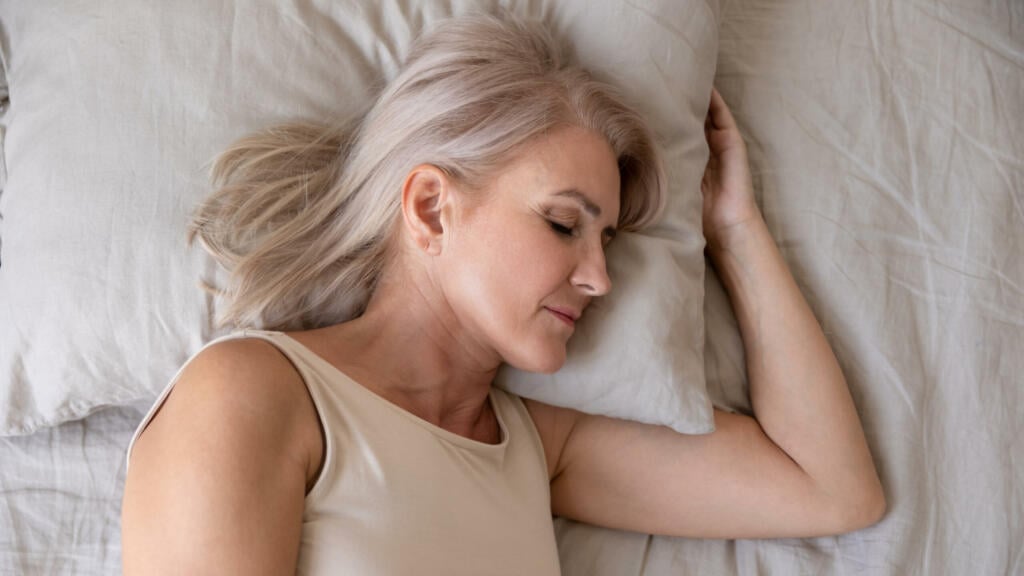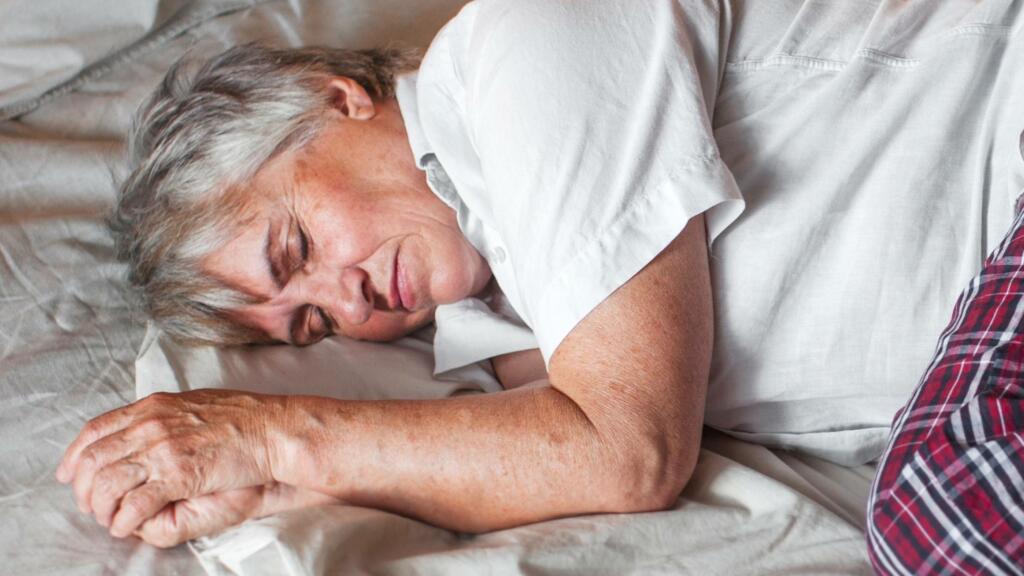
10 sleep truths from the experts
Rebecca Frew
If you’re considering ditching your pillow, chances are you may not have found the right one.
Sleeping with a pillow has been with us since around 7000 BC. Back then, our ancestors used to sleep on pillows carved out of rock.
Thankfully things have moved on since then, and today pillows are useful for reducing neck, back and shoulder pain while sleeping – but some of us can’t seem to get on with them. So is sleeping without a pillow bad?
Ultimately, it comes down to what you find comfortable – although there are a few things to think about first. For example, if you experience breathing issues when you sleep, then sleeping without a pillow may not be advised.
Sleeping with a pillow has been with us since around 7000 BC. Back then, our ancestors used to sleep on pillows carved out of rock.
Thankfully things have moved on since then, and today pillows are useful for reducing neck, back and shoulder pain while sleeping – but some of us can’t seem to get on with them. So is sleeping without a pillow bad?
Ultimately, it comes down to what you find comfortable – although there are a few things to think about first. For example, if you experience breathing issues when you sleep, then sleeping without a pillow may not be advised.
 Credit: Shutterstock / Gladskikh Tatiana
Credit: Shutterstock / Gladskikh Tatiana“It depends on the person,” says sleep expert and founder of sleep consultancy Hunrosa, Jan Jenner. “Most people use a pillow for comfort. Particularly as you get older, a pillow can be useful for supporting the head and neck.
“However, if you have breathing issues while you sleep – like sleep apnoea – having a pillow can be useful to keep your airways open.
“Some people with a breathing pattern disorder, find it more comfortable to sleep without a pillow. However, if you suspect you have a sleep condition, make an appointment with your GP before changing your sleeping habits.”
Sports and exercise physiotherapist Simon Hall agrees that if you want to sleep without a pillow, it’s up to you. “Most people are more comfortable sleeping with a pillow, but if you find sleeping without one more comfortable, then there is currently no evidence to suggest sleeping without a pillow is bad.
If you just can’t get on with your pillow, chances are you may not have found the right one.
“Unfortunately, there’s no secret answer to what pillow is best for everyone,” says Hall. “You need to use a healthy dose of trial and error and find what works best for you.
“I’ve found that side sleepers are often more comfortable with a supportive pillow to fill the gap between their shoulder and head, while back sleepers are often more comfortable with a lower pillow.”
A support pillow is usually recommended for side sleepers

Saga Exceptional’s Fitness & Wellbeing Editor in Chief, Stephanie Wood, is a side sleeper. She bought an ergonomic pillow on the recommendation of her osteopath after suffering with back and neck pain, and says it made a huge difference.
“The oesteo explained that my pain was partly due to tension caused by my head and neck not being fully supported in bed. He recommended using a pillow that was specifically contoured to fill the gap between my neck and the bed. I did as he advised, and the pain quickly eased.”
“I use Ikea’s Rosenskarm ergonomic pillow (£25, Ikea), and my only gripe is that it’s a little short in the width. The Orthotex Memory Foam Pillow (£29.99, Amazon) is a little wider, and has lots of five-star reviews.”
Wood adds: “I wouldn’t be without my support pillow now. I even have a spare one that I take with me when I travel to ensure I get a comfortable night’s sleep wherever I am.”
Hall concludes: “When it comes to buying a new pillow, I would advise seeking options that have a good return policy so that you can give it a go and see how it suits you personally.”
Feeling too hot can be disruptive to sleep, with common causes including your bedroom temperature being too high, night sweats during menopause, or even something as simple as sleeping with your socks on.
However, if you feel that your pillow is contributing to you getting too hot in bed, Jenner suggests a bamboo pillow could help you to stay cool by wicking sweat away from your head.
Panda London’s Memory Foam Bamboo Pillow (£44.95, Panda London) has won several ‘best pillow’ awards. It comes with a soft cover that is naturally breathable to encourage airflow and coolness.
Meanwhile, John Lewis’s Temperature Regulating Pillow (£40, John Lewis) gets favourable reviews on the brand’s website.
Beyond the head, pillows can be used in other ways to create comfort and take the weight off sensitive areas, says Hall.
“Side sleepers with uncomfortable backs and hips can often get relief from having a pillow between their knees, and back sleepers can often get some added comfort in their backs from having a pillow or two under the knees.”
Ultimately, both Hall and Jenner agree that it’s up to you how you choose to sleep. Find out what makes you comfortable, so you can drift off into the land of nod and get the hours of sleep that you need.

Written by Rebecca Frew she/her
Published: Updated:
Becky Frew has written various articles for newspapers and magazines focusing on fitness, is a qualified run leader, and a certified sleep talker trainer who loves to help advise people how they can nod off easier. When she is not writing or reading about fitness, she is at hot pod yoga, bounce class, training for an ultra-marathon or booking anything with a medal and free food at the end.